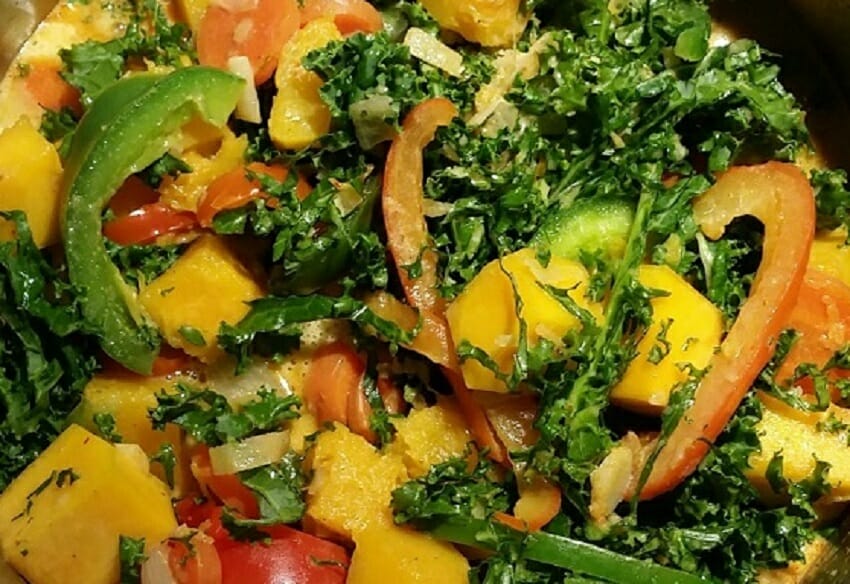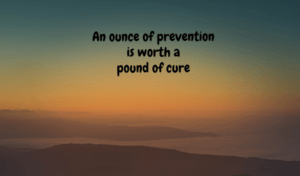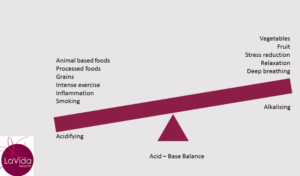Every day, you are constantly exposed to bacteria, viruses and bugs of all kinds. We really had this drummed into us during 2020 and, pandemics aside, you do need to take care of your immune system to avoid getting sick at the drop of a hat.
I’ve written before about why this is particularly important in the colder months. However, making sure you are consuming the key nutrients your immune system depends on is important all year round.
The key nutrients for good immunity
There are many factors that influence how robust your immune system is. These include optimising sleep, managing stress, whether you smoke and how much alcohol or sugar you consume.
All of these are within your control, as is the nutritional richness of your diet.
And when it comes to food, consuming adequate protein (including fish for essential fatty acids) and plenty of anti-oxidant rich foods like fruit and vegetables will provide a good foundation for health.
Most vitamins and minerals play a role in our immune function in some way but the key nutrients for good immunity are the Vitamins A, C and E and the minerals zinc and selenium.
Vitamin A
This vitamin is important for helping to modulate the immune system and is integral to maintaining your mucous membranes (think the lining of your nose, lungs, gut etc) which act as the main barriers keeping unwanted bugs out of your system.
You will find vitamin A in egg yolks, carrots, cod liver oil, apricots and kale. Your body can also make vitamin A from foods containing beta-carotene including capsicums, sweet potatoes and papaya. (In other words, make sure you are eating your yellow and orange foods.
Vitamin C
You’ve probably taken vitamin C at some stage to help you avoid or recover from a cold. It helps you to resist infections through its role in supporting our white blood cells. It’s also helpful in reducing allergies. Bear in mind that your body churns through vitamin C at a rapid rate when under stress.
Good food sources of vitamin C include strawberries, blackcurrants, sweet potatoes, kale, pawpaw, pineapple and many other tropical fruits.
Vitamin E
Alongside vitamin C, vitamin E is a potent antioxidant. It helps to boost important immune cells such as lymphocytes and natural killer cells.
To top up your vitamin E make sure you are eating eggs, nuts and seeds (such as almonds, peanuts and sunflower seeds), red capsicum, corn, pumpkin and even a bit of wheat germ.
Zinc
Zinc is a critical co-factor required for many of your body’s immune activities, including how well your immune system responds to a threat.
You’ll get your zinc from animal protein such as beef and seafood (especially oysters), seeds such as pumpkin and sunflower seeds, and mushrooms (especially crimini).
Wholegrains (e.g. oats) also contain zinc but, due to other nutrients (specifically, phytates) within the grain, the zinc may not be as readily absorbed into your body.
For non-meat eaters, eating a variety of beans and legumes is important for your zinc intake.
Dark chocolate and cacao can also provide some useful zinc (so feel free to indulge in good quality dark chocolate occasionally).
Selenium
We find selenium concentrated in the immune tissues in the body. It plays an important role as an antioxidant in the function and regulation of your immune system.
Consuming Brazil nuts, meat (especially organ meat), fish, legumes and eggs will help you meet your selenium needs.
You shouldn’t need to micromanage your diet
Generally speaking, if you eat meat or seafood and have a varied diet with plenty of vegies and fruit you should go a long way to meeting your nutritional needs for a healthy immune system. So sprinkle those nuts and seeds on your salads, porridge or stirfries, eat a couple of pieces of fruit every day and make vegetables the main part of your meals.
Eating the foods mentioned above will not only give you these key nutrients but other important vitamins and minerals such as B vitamins, iron, copper, essential fatty acids and more.
When to take a supplement?
Sometimes, your needs exceed your dietary intake.
For example, the mineral content of our food supply is largely dependent on the content of the soil in which it is grown. Selenium is commonly low in Australian soils (so look at where your Brazil nuts are grown).
Sexually active men have a bigger requirement for zinc as it is lost from the body in semen.
If your body is stressed, your needs for many nutrients including vitamin C will increase.
If your digestion is not great, you may not absorb your nutrients from your food. The solution is to improve your digestion (start with these tips).





